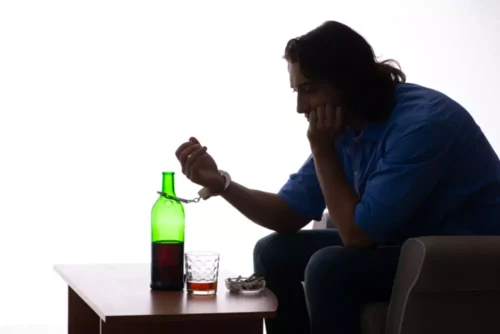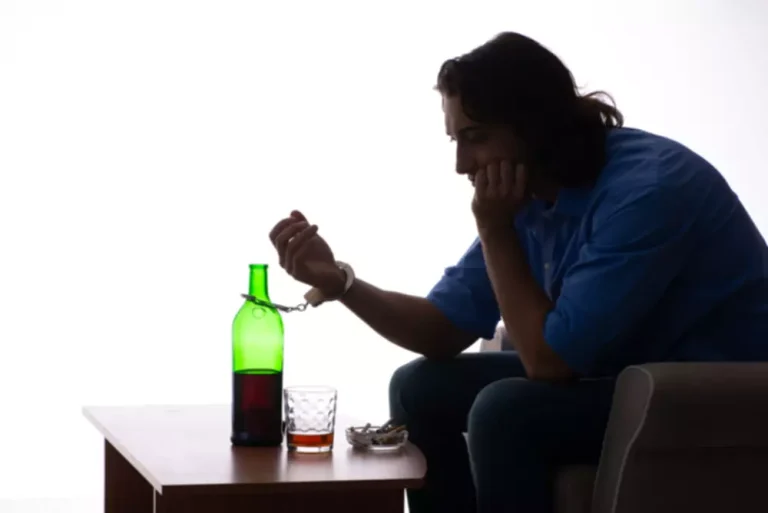
Also, a healthy diet can help undo damage alcohol may have done to the person’s health, like weight gain or loss. When is it common in society, it can be hard to tell the difference between someone who likes to have a few drinks now and then and someone with a real problem. Mutual-support groups like Alcoholics Anonymous (AA) and inpatient rehabilitation are common treatments for alcohol problems.
Signs of Alcoholism

You might not recognize how much you drink or how many problems in your life are related to alcohol use. Listen to relatives, friends or co-workers when they ask you to examine your drinking habits or to seek help. Consider talking with someone who has had a problem with drinking but has stopped. Per Levin et al., there’s a “drunken monkey” theory that predicts that certain animals well-adapted to low concentrations of ethanol in their diets nonetheless have adverse reactions at higher concentrations. FASDs can occur when a person is exposed to alcohol before birth. Alcohol in the mother’s blood passes to the baby through the umbilical cord.

Alcohol use disorder

The ethanol also adversely affected the bees’ locomotion and cognitive abilities, as well as aggressive and foraging behaviors. The most in-depth care allows you to live full time at a treatment facility. These setups can also work along with 12-step programs such as Alcoholics Anonymous. Relating to other people with substance abuse issues may help someone break through denial and begin to recover. If you want to know more about alcohol use disorder, including treatment options and what counts as a “standard drink” in the United States, you can visit the NIAAA Rethinking Drinking website. But genetics on their own don’t control whether a person has an alcohol use disorder.
- In more severe cases, people may also have seizures or hallucinations.
- A 2019 study found that people with substance use disorder in their late adolescence years were four times more likely to develop alcohol use disorder in early adulthood.
- Those who use alcohol may begin to show early signs of a problem.
- These complications affect several bodily systems, including the GI, neurological, cardiovascular, and endocrine systems.
- As you recover from AUD, you may find it helpful to see a psychotherapist who uses cognitive behavioral therapy (CBT) techniques.
- If you think you need help with alcohol use, talk to your doctor.
Severe Alcohol Use Disorder
The test is free, confidential, and no personal information is needed to receive the result. While intoxication doesn’t necessarily indicate the individual has a problem with alcohol, recurrent intoxication may signify alcohol misuse—or addiction. In some people, the initial reaction may feel like an increase in energy. But as you continue to drink, you become drowsy and have less control over your actions. The team analyzed the Oriental hornet’s genome and found the insects have several copies of a gene involved with producing the enzyme that breaks down alcohol. The authors suggest that the hornets’ long-standing mutually beneficial relationship with yeasts led to an evolutionary advantage in tolerating alcohol.
People with AUD represent about 20–35 percent of completed suicides. Alcohol use may also contribute to complications that affect multiple bodily systems, such as certain cancers, fetal alcohol spectrum disorders, and chronic pain. Alcohol can cause abnormalities in the blood cells in several ways, including nutritional deficiency, marrow toxicity, and liver disease. See your doctor if you begin to engage in behaviors that are signs of alcohol use disorder or if you think that you may have a problem with alcohol.
Combined with medications and behavioral treatment provided by health care professionals, mutual-support groups can offer a valuable added layer of support. For example, if you’re receiving treatment for a condition related to alcohol use, like cirrhosis of the liver, you should ask your healthcare provider about changes in your body that may be new symptoms. If you’re receiving counseling, ask your provider about handling high-stress situations when you may feel like you need some additional mental health support. Like many other substance use disorders, alcohol use disorder is a chronic and sometimes relapsing condition that reflects changes in the brain. This means that when people with the disorder are abstaining from alcohol, they are still at increased risk of resuming unhealthy alcohol consumption, even if years have passed since their last drink.
With so many effects on the body, the usual first step in treating alcoholism is detox—or getting alcohol out of your system. Depending on the severity of the alcohol use disorder, this stage can be mildly annoying or severe. Early withdrawal symptoms include headaches, anxiety, nausea, irritability and shaking. When healthcare providers screen for this condition, they look at drinking behavior Why Alcoholism is Considered a Chronic Disease patterns within the last year to determine a diagnosis. They use a set of 11 criteria established by the Diagnostic and Statistical Manual of Mental Disorders, Fifth Edition (DSM-5) to assess alcohol use severity.
What’s Meant By Alcoholism (Alcohol Use/Abuse Disorder)?

Binge drinking is when you drink enough alcohol to raise your blood alcohol content (BAC) to 0.08% or higher. For men, that typically is about five standard alcoholic drinks within a few hours; for women, this is four alcoholic drinks within the same period. “Alcoholism” and “alcohol abuse” are terms people use when referring to alcohol use disorder (AUD), a widespread issue in the United States. It affects 12.1% of males 12 and older and 9.1% of females in the same age group. If you drink more alcohol than that, consider cutting back or quitting.
Causing issues with family and friends

In “case management,” a professional may work with you one-on-one. Outpatient programs make it possible for you to get treatment during the day and still live at home. If you think that you or someone you know may be drinking too much, ask your doctor about getting help – whether it’s from a therapist, psychiatrist, or other addiction specialist. Organizations such as the American Society of Addiction Medicine can guide you to help, too. If you’re experiencing alcohol dependence, stopping alcohol use suddenly can cause dangerous effects, such as seizures. Symptoms of alcohol use disorder can look differently in each person.


Leave a Reply